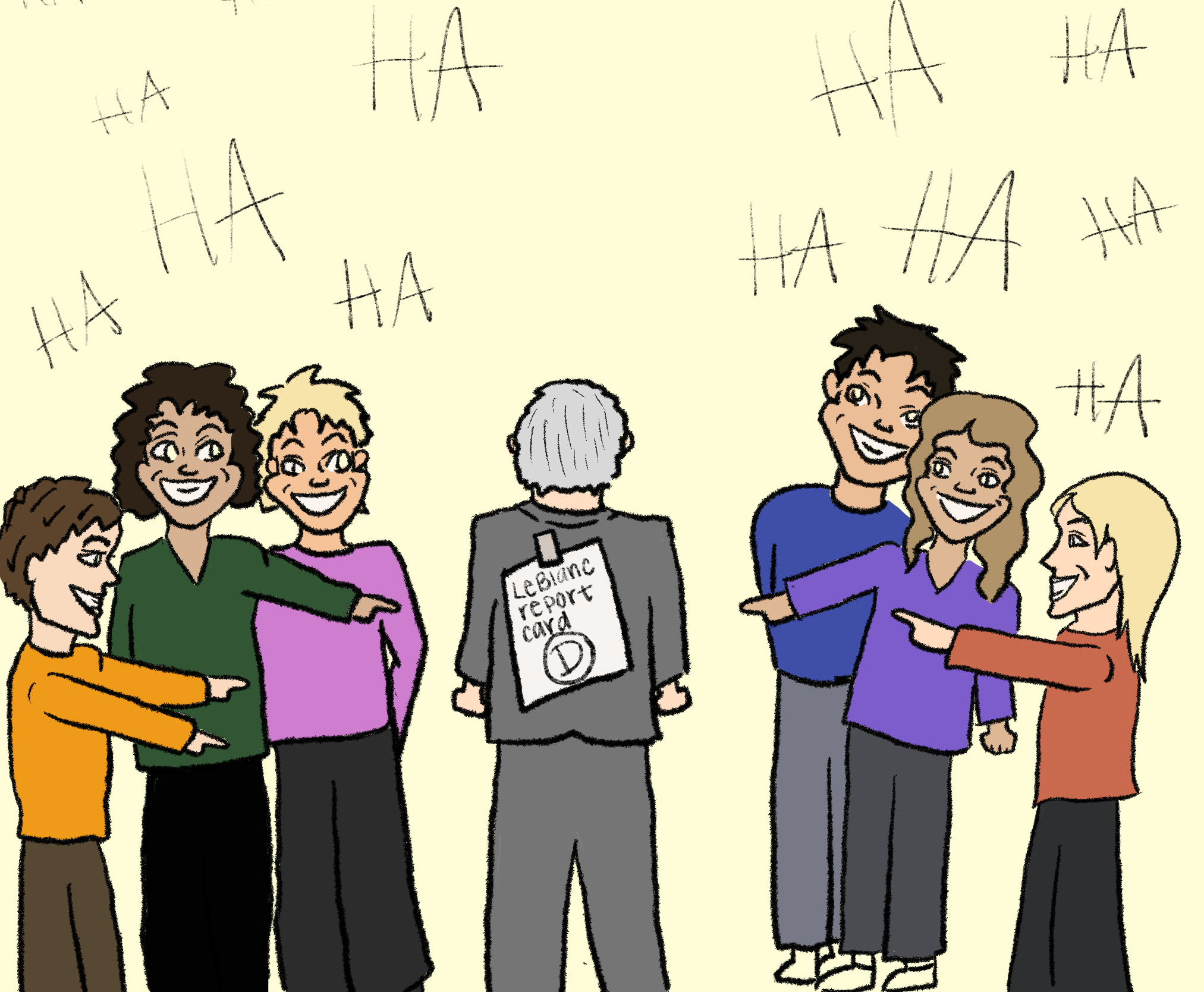The GW community’s tolerance of University President Thomas LeBlanc’s leadership is dwindling.
Students have expressed previous frustration with LeBlanc, ranging from criticism over insensitive remarks to concerns about an extravagant inauguration in his very first semester at GW. Faculty and students have found themselves angered over layoffs and have expressed frustration with LeBlanc’s administrative priorities, like his 20/30 plan that has now gone stagnant because of the COVID-19 pandemic or his decision to hire Heather Swain. But until recently, those concerns had been limited to faculty senators or members of the Faculty Association, who make up a minority of overall faculty.
This week, a faculty-wide survey approved by the Faculty Assembly revealed an “overwhelmingly negative” sentiment among faculty toward GW’s leadership. Faculty critiqued the University’s partnership with the Disney Institute, the campus climate and LeBlanc himself. Some faculty members pointed to the hiring of Swain – who withdrew from the hiring process after concerns over her role in the Larry Nassar sexual abuse case came to light – as an example of LeBlanc’s poor leadership. Others highlighted nepotism in LeBlanc’s top hires, who frequently come from the University of Miami, his previous institution.
The results of the faculty-wide survey are revealing of an unfortunate trend – LeBlanc’s leadership is more divisive than ever. The Board of Trustees’ standard review of LeBlanc’s performance is underway, and the body will soon decide whether or not to renew his contract. The results of the faculty survey should make that decision clear – LeBlanc has now lost the trust of faculty, and it is time for the Board to move on.

Hannah Thacker | Opinions Editor
While LeBlanc won decent marks for his handling of the pandemic – 51 percent of faculty indicated ambivalent or positive feelings – the most worrisome trends are transparency and diversity. More than 80 percent of faculty indicated they were unhappy with LeBlanc’s handling of those areas.
Concerns about diversity are not new to LeBlanc. When he was first hired, faculty criticized the lack of diversity on the search committee and pushed LeBlanc to make diversity a priority in his administration. Instead of meeting the challenge, LeBlanc has balked at improving diversity. But these concerns are trumped by disapproval of LeBlanc’s leadership skills.
The most important leadership skill for a University president is transparency, especially when it comes to leading during a crisis. GW has been in crisis for years before the pandemic, dealing with high debt, low alumni giving and plummeting rankings. Looping in professors, staff and students is key to improving campus because administrators cannot tackle GW’s problems alone. But rather than prioritizing transparency, LeBlanc has dodged addressing faculty questions and concerns.
LeBlanc’s problematic 20/30 plan has been the source of many tensions between faculty and administrators. The planned enrollment cut would harm diversity and make it harder for low-income students to attend GW, while also negatively impacting humanities departments. Faculty have been critical of the plan, but LeBlanc continued pushing it forward until the pandemic stalled progress. It’s not the first time that LeBlanc has ignored the opinions of faculty and staff. When he was denounced for hiring the Disney Institute to review the campus culture and climate, he elected to extend the partnership.
Over the course of his three-year administration, LeBlanc has made it a habit to not only disregard critics but to treat them with contempt. When he was criticized for choosing Marcia McNutt as the Commencement speaker in 2018, he lashed out at students on a hot mic. When he was called out for GW’s fossil fuel investments last year, he responded with an insensitive analogy that prompted backlash from students and faculty.
LeBlanc has repeatedly ignored and minimized faculty opinions, leading to an unsurprising 85 percent of faculty not trusting the administration and a majority who have lost confidence in LeBlanc himself. That level of trust is not sustainable for the University, especially given current circumstances. GW needs strong leadership from its top leaders, but that is not possible without the trust and support of faculty.
The LeBlanc experiment has lasted three years too long. While he has previously caused outcry on campus with misguided decisions and public blunders, this survey has made it clear that he has lost the trust of faculty. When the majority of faculty say that it is time to move on, then it is time for trustees to do what LeBlanc cannot – listen.
Kiran Hoeffner-Shah, a senior majoring in political science and psychology, is the managing director and former opinions editor.


